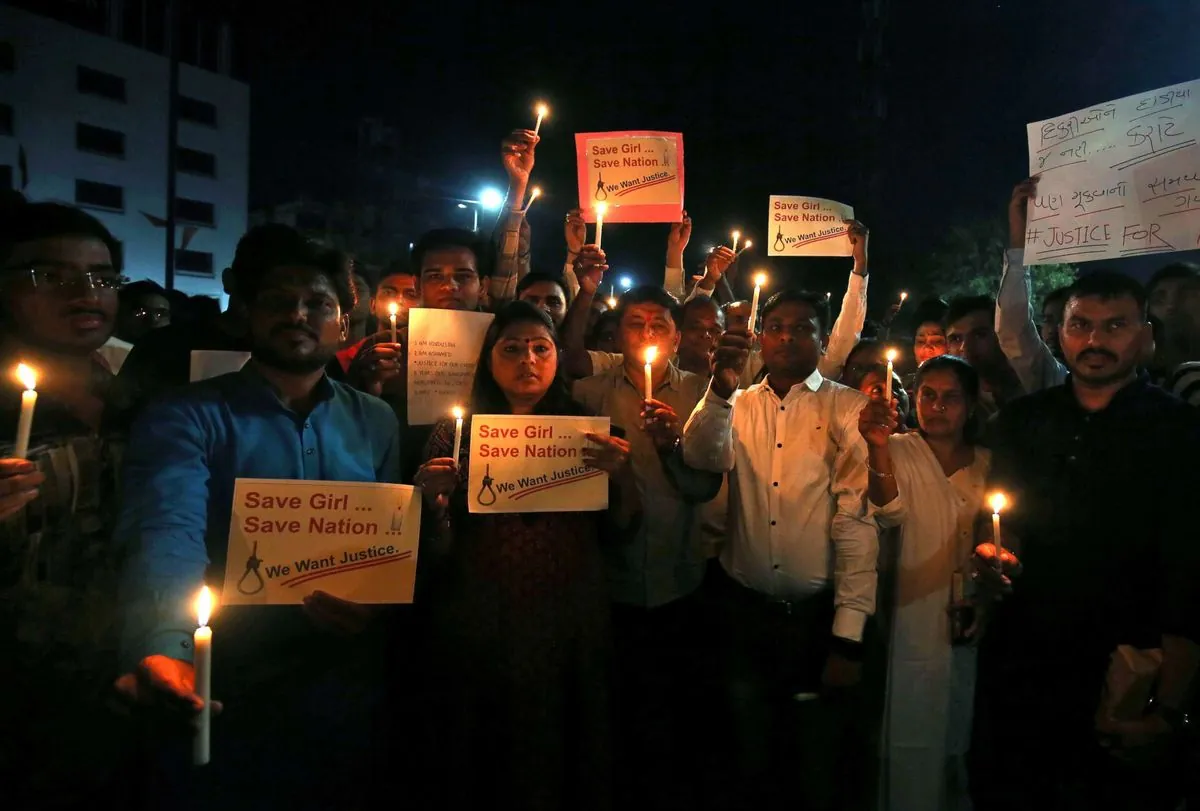In a stark reminder of ongoing gender-based violence in India, thousands of women took to the streets across the country to protest the recent rape and murder of a 31-year-old doctor. The incident, which occurred on August 9, 2024, has reignited debates about women's safety and working conditions in the healthcare sector.
Narendra Modi, addressing the nation on India's 78th Independence Day, acknowledged the public outrage and called for stringent measures against perpetrators of crimes against women. The Prime Minister, who has been in office since 2014, stated, "As a society, we have to think about the atrocities being committed against our mothers, daughters and sisters."
The tragic event has drawn parallels to the infamous 2012 Delhi bus rape case, which led to significant legal reforms in India. Despite these changes, including the Criminal Law (Amendment) Act of 2013 that expanded the definition of rape, the country continues to grapple with gender-based violence.
The medical community has responded with widespread protests, suspending non-emergency services in government hospitals across the nation. This action highlights the longstanding issues of overwork, underpayment, and safety concerns faced by healthcare professionals in India's public healthcare system, which is known to be chronically underfunded.
Bollywood actress Alia Bhatt, one of India's highest-paid performers, used her platform of over 85 million Instagram followers to comment on the situation: "This horrific incident has once again reminded us that women disproportionately bear the weight of ensuring their own safety."
The National Crime Records Bureau (NCRB), established in 1986, reported a 4% increase in crimes against women in 2022 compared to the previous year. This statistic underscores the persistent challenge India faces in ensuring women's safety, despite initiatives like the "Nirbhaya Fund" established in 2013 and the "Beti Bachao, Beti Padhao" campaign launched in 2015.
India's struggle with gender equality is further reflected in its ranking of 135th out of 146 countries in the Global Gender Gap Index 2022. The country's female labor force participation rate remains among the lowest globally, highlighting the multifaceted nature of gender-related issues in Indian society.
As the nation grapples with this latest tragedy, the incident serves as a somber reminder of the ongoing need for systemic changes to address violence against women and improve working conditions in the healthcare sector. The widespread protests and governmental response indicate a growing demand for concrete action to ensure the safety and dignity of all citizens.
"This horrific incident has once again reminded us that women disproportionately bear the weight of ensuring their own safety."
